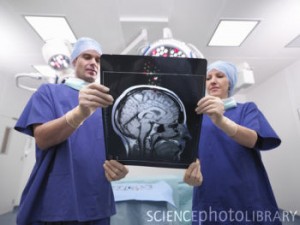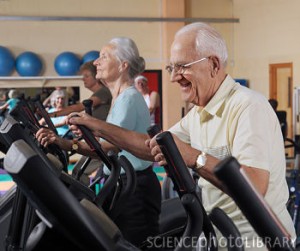Breaking news: The US has recently approved a new study aimed at preventing Alzheimer’s disease before it starts ravaging the brain. In a move aimed at decreasing health care costs, some new Alzheimer’s disease treatments may prevent early onset Alzheimer’s in people who are prone for dementia.
An Alzheimer’s cure by 2025
As part of the US plan to cure Alzheimer’s by a 2025 deadline, researchers are studying the effect of an experimental drug on people who are genetically inclined to develop Alzheimer’s disease. Once brain atrophy begins, it’s impossible to stop the progression of this fatal disease, but by introducing a preventive treatment ten years beforehand, scientists hope to delay or possibly prevent dementia symptoms from occurring.
Diabetes-Alzheimer’s disease
Based on a theory that links diabetes with increased risk for Alzheimer’s, scientists have also developed an insulin nasal spray designed for dementia patients. Researchers are testing the drug, looking for improvements short-term memory, reasoning, and attentiveness in people suffering from mild symptoms of dementia.
Here’s Your Brain on B12 Deficiency- Memory Loss and Aging
The clock is ticking
Scientists are still not positive exactly what causes Alzheimer’s disease, but they do know that unless they find an effective cure, the current number of Americans diagnosed with Alzheimer’s disease or other forms of dementia- 5.4 million- will double by 2050.
More info on Alzheimer’s disease is available on the new government website, alzheimers.gov.
Tips to boost brain power
Aside from drugs, many other effective treatments are available that may delay signs of dementia while improving your memory and increasing mental clarity.
Vitamin B12. Numerous studies on elderly individuals diagnosed with early-onset Alzheimer’s disease indicate that vitamin B12 deficiency increases your chances of losing brain volume in your old age. Participants who had healthy levels of vitamin B12 scored better on mental acuity tests than their peers who had low vitamin B12 blood levels. Similarly, MRI scans of early dementia patients who took vitamin B12 supplements indicated fuller, healthier brain mass than those who did not take vitamin B12.
Can B12 Beat Alzheimer’s? Neurology Says it can…
Exercise your brain. Every time you use your brain, you activate your brain power, strengthening your brain muscles. Studies show that people who engage in strategy games like chess improve their memory skills with time. Other great games to try are Sudoku, Scrabble, and the Japanese game, Go.
Exercise your body. Engaging in light aerobics increases blood flow to the brain, improves your mood, reduces stress, and supplies more oxygen. It also reduces your chances of getting Alzheimer’s in your middle age, and prevents heart disease.
Eat brain foods. Include plenty of omega-3 fatty acids in your diet- eat at least 2 fish meals per week, or take supplements. As a bonus, seafood fares like halibut, shellfish, and tuna are also high in vitamin B12!
Please tell us…
What vitamins and minerals do you take for optimum brain health?
Do you have any questions or suggestions? Please leave your comments below.
Share with your friends!
If you found this article helpful, then please share with your friends, family, and coworkers by email, Facebook, or Google+.
Read more about Alzheimer’s and B12
Can Vitamin B12 Deficiency cause Dementia?
Aging begins at 45- Tips on how to Prevent Early Memory Loss
References:
Scientists hunt ways to stall Alzheimer’s earlier
U.S. launches ambitious Alzheimer’s plan with research push
Images:
MONTY RAKUSEN, CULTURA /SCIENCE PHOTO LIBRARY
CRISTINA PEDRAZZINI/SCIENCE PHOTO LIBRARY
COLIN HAWKINS/SCIENCE PHOTO LIBRARY




